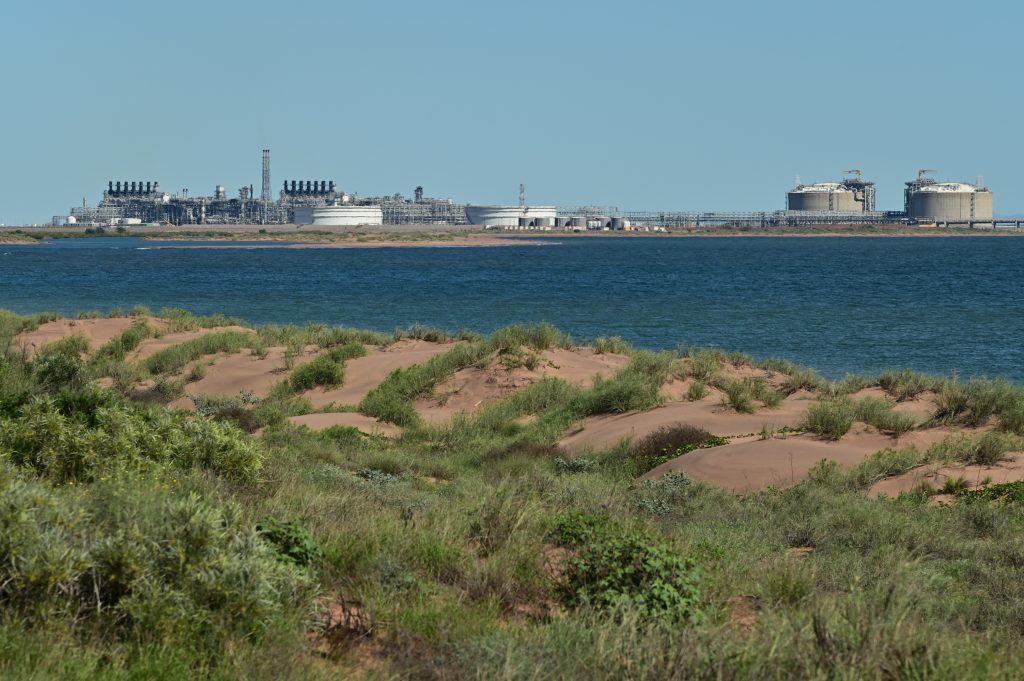By TBH Director, George Matta
A recent decision arising out of the Supreme Court of Westen Australia, Rock JV Pty Ltd v Thiess Pty Ltd [No 2] [2023] WASC 455, has highlighted the importance for the expert witness to have specialised knowledge, derived from study or experience, on a subject for which unqualified persons require that assistance to form a sound judgment. The Court further highlighted that an expert should provide an opinion within their demonstrated field of specialist knowledge, based on facts which can be clearly identified, and explain the reasons by which they have arrived at their conclusions.
Factual background
Chevron engaged Bechtel (Western Australia) Pty Ltd (“Bechtel”) as its primary contractor for the Wheatstone Project (“Project”) near Onslow in the north-west of Western Australia (“Project Site”).
On 21 December 2011, Bechtel and the Best Joint Venture (an unincorporated joint venture between Thiess and NV Besix SA (Besix)) (“Best JV”) entered into a contract for the design, procurement and construction of marine facilities. Subsequently, on 30 March 2012, Bechtel and Thiess Pty Ltd (“Thiess”) entered into a contract for the site clearing and preparation works for the Project.
In August 2012, Thiess and Best JV entered into separate supply contracts with Rock JV Pty Ltd (“Rock JV”) for the supply of rock products for use in these works.
Due to delays in gaining access to the Project Site, both Thiess and Best JV delayed the commencement of delivery by Rock JV of rock products. Over the course of each supply contract, Thiess and Best JV increased the total amount of rock products each required and altered the quantities of particular rock products to be supplied by Rock JV under the supply contracts.
Rock JV claimed that because of the delays by Thiess and Best JV in taking the initial deliveries of rock products, the stockpiles at the quarry became saturated, resulting in a reduction in productivity and an increase in costs. Rock JV contended the increased costs were caused solely by the actions of Thiess and Best JV in delaying the taking of the initial rock products under the relevant supply contracts.
Rock JV’s claim for damage and apportionment of costs
According to Rock JV, it was necessary to undertake the following steps for the assessment of its damages for delay:
(a) calculate a baseline cost that Rock JV would have incurred but for the delay in taking the initial deliveries;
(b) determine the impact of the delay in Thiess and Best JV failing to take their initial deliveries under their respective supply contracts, as well as the impact of other events at the Quarry;
(c) verify the actual costs that Rock JV incurred; and
(d) apportion these costs between Thiess, Best JV and Rock JV.
In support of Rock JV’s claim as to how the costs it sought should be apportioned between Thiess, Best JV and Rock JV, it relied on the expert report of its Quantum Expert and the Fourth expert report of its Quarry Expert (the first Three reports addressed issues in relation to equipment and stockpiling). In doing so, Rock JV’s Experts adopted the following steps:
(a) Rock JV Quantum Expert identified 96 separate events across 25 windows which, in his view, caused delay or disruption to the performance of the supply contracts;
(b) Rock JV Quarry Expert then considered whether each of the events identified by Rock JV Quantum Expert had any impact on Rock JV productivity and then apportioned blame between Thiess, Best JV and Rock JV; and
(c) Rock JV Quantum Expert then used the apportionment identified by Rock JV Quarry Expert against the cost overrun in order to determine the cost allocation.
Thiess relied on the expert evidence of its Delay and Disruption Expert, who responded to the above submission.
Both Thiess and Besix raised particular objections to the Rock JV Quarry Expert Fourth report. The primary objection was that the report did not set out the evidence nor the reasons on which his conclusions were based, and that the apportionments contained in the report were arbitrary. Thiess and Besix submitted that Rock JV’s Quarry Expert’s assessment of apportionment was not underpinned by any reasoned analysis.
In addition, both Thiess and Besix submitted that Rock JV’s Quarry Expert was not qualified to give any expert opinion evidence in respect of the apportionment of the loss as between Thiess and Besix. On this basis, both defendants contended that the Fourth report of Rock JV’s Quarry Expert was inadmissible.
Court’s opinion in relation to the admissibility of Rock JV’s Quarry Expert Fourth report
The court outlined that, as a general rule, a witness can only give evidence as to matters they have observed. There is an exception to this general rule for experts who are able to give opinion evidence. To qualify as an expert, the witness must have “specialised knowledge, derived from study or experience, on a subject for which unqualified persons require that assistance to form a sound judgment”.
Further, the court stated that the role of the expert is to provide an opinion within the demonstrated field of specialist knowledge, based on facts which can be clearly identified. This requires an expert to explain how they have applied their special knowledge to the facts and matters that have been assumed to produce their opinion.
Furthermore, it is necessary for the expert to explain the reasons by which they have arrived at the conclusions expressed in the report. It is not necessary for the court to be satisfied the reasoning is correct, but it must be stated. It is also necessary for the expert to set out the process of inference that led to the formation of their opinion. This enables the conclusions to be tested and a judgment made about whether these conclusions are reliable.
For the following primary reasons, the Court concluded that the Fourth expert report of Rock JV’s Quarry Expert was not admissible:
(a) The Court was not satisfied that the JV Quarry Expert was qualified to express an opinion as to the apportionment of responsibility between Thiess, Best JV and Rock JV. Neither his resume nor his evidence suggested he had any qualifications or experience in undertaking the task of apportioning responsibility between the parties. The Court did not accept that it is within the sphere of expertise of a quarry manager to express an opinion on blame apportionment;
(b) It is not apparent from the contents of the Rock JV’s Expert report how he reached the conclusions expressed in his report or even how his conclusions on apportionment had been calculated. It was the Court’s view that the report sets out his conclusions but not his reasoning process or analysis. No process of reasoning was disclosed in the report in relation to his opinion on the apportionments expressed in the report; and
(c) The events identified by Rock JV’s Quantum Expert, which were considered by Rock JV Quarry Expert in his report, were not limited to the events of delay in taking the initial deliveries under the supply contracts. Rock JV Quarry Expert failed to distinguish between the impact of the delay in taking the initial deliveries and other events. The report did not address the specific question the Court was required to decide in these proceedings, which is whether any of the costs identified by Rock JV was directly attributable to the delay in taking the initial deliveries.
Key takeaways
When retaining an expert to give an opinion, a party in a dispute should be satisfied that the selected expert must have acquired, by study and/or experience, sufficient knowledge of the matters the subject of their evidence, to render the evidence of value to the court in resolving the issues before it. Evidence of an expert’s opinion must be confined to matters which are the subject of their special knowledge or experience.
Furthermore, an expert opinion must:
(a) provide the facts on which the opinion is based;
(b) disclose the process of reasoning that led to the formation of their opinion;
(c) be comprehensible and the conclusions reached must be rationally based; and
(d) address the question(s) the Court is required to decide on.
About George Matta

George is a recognised testifying expert in the analysis of delays, acceleration and disruption claims. He has 30-years’ experience embracing several iconic projects including power stations, airports, water, health, education, railways, tunnels, roads and bridges, oil and gas, mining and residential projects across the Middle East, Asia and Australia. George has also been appointed by both disputing parties as the Expert in an Expert Determination process.
For more information on TBH’s Claims and Dispute Resolution services, click here.


